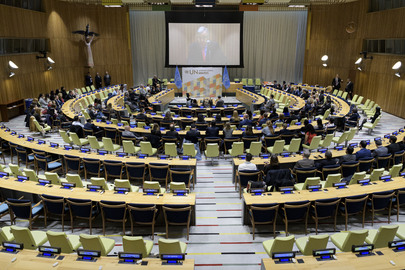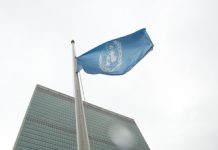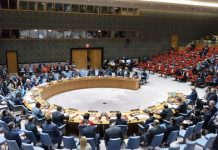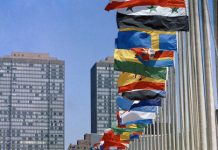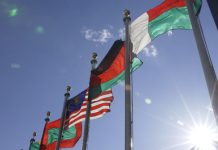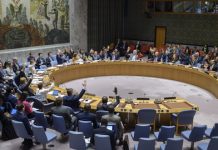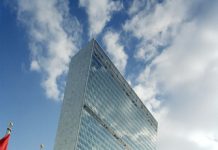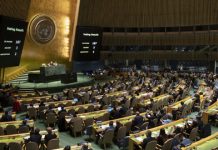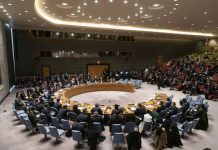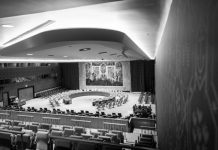Extreme weather pushing front-line communities to the brink
At least 117 million people have been displaced by war, violence and persecution around the world, the UN refugee agency (UNHCR) said on Monday, while also highlighting how their plight is tied to the growing climate crisis.
“Whether it is floods sweeping South Sudan and Brazil, record-breaking heat in Kenya and Pakistan, or water shortages in Chad and Ethiopia, extreme weather is pushing already fragile communities to the brink,” the UN agency said.
With more, here’s UNHCR spokesperson Eujin Byun:
“Millions of refugees and their host community are trapped in a cycle of conflict and also climate shocks…Their homes, livelihood and essential services are being destroyed, forcing families to flee again and again, often with very few resources to recover. Environmental degradation is making the situation worse, limiting access to food, water and income, and even fuelling conflict in some regions, and make them displaced again.”
Over the past decade, weather-related disasters have displaced people at a rate of 70,000 every day, or two displacements every three seconds, according to a new report from UNHCR.
The agency is urging governments meeting at the COP30 climate summit in Brazil to include displaced people in climate plans, invest in resilience measures and ensure resources reach those on the front lines.
By 2050, the hottest refugee camps could face nearly 200 days of extreme heat stress per year, with many likely to be too dangerous to live in, UNHCR warned.
COP30 climate summit: We won’t give up on 1.5°C goal, insists UN chief
As the COP30 climate talks officially began in Brazil on Monday, UN Secretary-General António Guterres called for faster collective action to keep temperatures from rising so fast.
“The UN will not give up on the 1.5 degrees goal,” he said in a message on X, referring to the global pledge made in Paris in 2015 to limit global warming to within reach of pre-industrial levels.
In a call for a decade of action to help the world’s most vulnerable nations resist climate change, Mr. Guterres acknowledged that although the challenge remains “immense”, the choices are clear.
The UN chief has been a consistent supporter of renewable energy production over fossil fuels.
Representatives from more than 190 countries are taking part in COP30.
They heard the UN’s top climate change official, Simon Stiell, say that the Paris Agreement has helped bend the curve of emissions downward, as he issued a clear call for a clean energy revolution.
“Every gigawatt of clean power cuts pollution and creates more jobs and every action to build resilience helps save lives, strengthen communities and protect the global supply chains that every economy depends on,” Mr. Stiell said.
Countries agree to global ban on mercury dental fillings: UNEP
Efforts to protect people and the environment from mercury pollution have received a welcome boost, after countries agreed to a total ban on amalgam fillings destined for dental work – but which are often misused in small-scale gold mining instead.
Ending their manufacture, import and export by 2034 will be “much more easy to enforce” than trying to stop people using amalgam fillings for other purposes than dentistry, said Monika Stankiewicz, Executive Secretary of the Minamata Convention, the international accord on mercury.
Here’s Ms. Stankiewicz speaking in Geneva on Monday:
“This final ban would make it clear that’s no longer dental amalgam is to be traded at all, and therefore it will be much easier to ensure it doesn’t get used where it is not supported, the mercury is not used for other purposes where it’s not allowed.”
There are 151 States Parties to the Minamata Convention.
At a meeting in the Swiss city just ended, countries strengthened action to address the toxic legacy of small-scale gold mining. Miners combine mercury with gold particles, before burning off this mix to leave just gold.
Countries recognised the need to provide alternative livelihoods for mining communities involved in this highly polluting process, to encourage them to move away from using mercury.
Among other measures, governments also committed to strengthening the ban on skin-lightening make-up containing mercury.
Daniel Johnson, UN News
Source of original article: United Nations (news.un.org). Photo credit: UN. The content of this article does not necessarily reflect the views or opinion of Global Diaspora News (www.globaldiasporanews.com).
To submit your press release: (https://www.globaldiasporanews.com/pr).
To advertise on Global Diaspora News: (www.globaldiasporanews.com/ads).
Sign up to Global Diaspora News newsletter (https://www.globaldiasporanews.com/newsletter/) to start receiving updates and opportunities directly in your email inbox for free.


